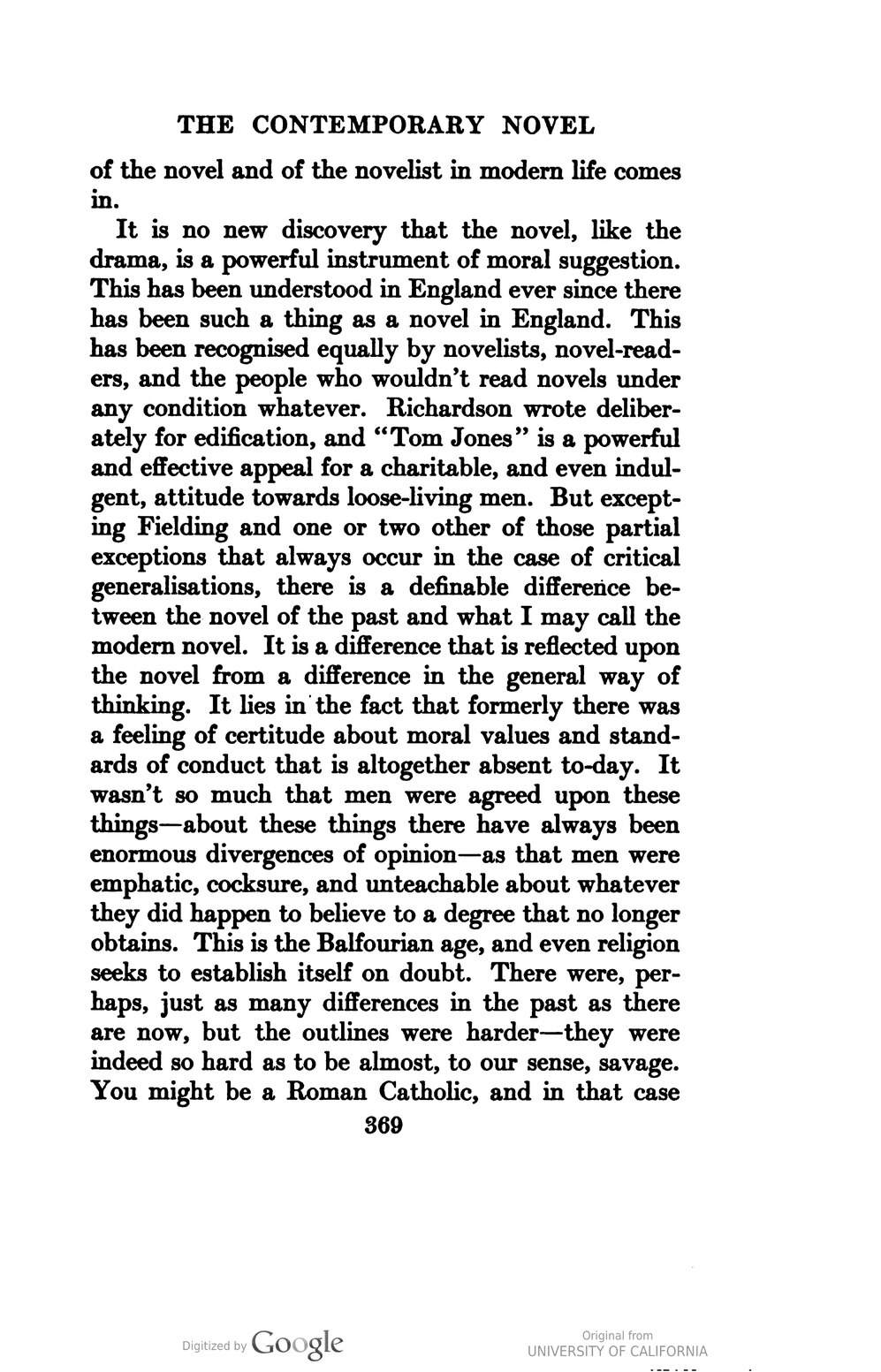THE CONTEMPORARY NOVEL
of the novel and of the novelist in modern life comes in.
It is no new discovery that the novel, like the drama, is a powerful instrument of moral suggestion. This has been understood in England ever since there has been such a thing as a novel in England. This has been recognised equally by novelists, novel-readers, and the people who wouldn't read novels under any condition whatever. Richardson wrote deliberately for edification, and "Tom Jones" is a powerful and effective appeal for a charitable, and even indulgent, attitude towards loose-living men. But excepting Fielding and one or two other of those partial exceptions that always occur in the case of critical generalisations, there is a definable difference between the novel of the past and what I may call the modern novel. It is a difference that is reflected upon the novel from a difference in the general way of thinking. It lies in the fact that formerly there was a feeling of certitude about moral values and standards of conduct that is altogether absent to-day. It wasn't so much that men were agreed upon these things—about these things there have always been enormous divergences of opinion—as that men were emphatic, cocksure, and unteachable about whatever they did happen to believe to a degree that no longer obtains. This is the Balfourian age, and even religion seeks to establish itself on doubt. There were, perhaps, just as many differences in the past as there are now, but the outlines were harder—they were indeed so hard as to be almost, to our sense, savage. You might be a Roman Catholic, and in that case
369
